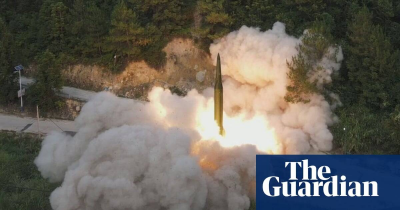The Guardian-Three defence industry leaders removed from China advisory body
December 28, 2023 3 min 552 words
这则报道揭示了中国军方内部的深刻变革和清洗行动。三名高级航空与国防业务领导人被从中国共产党的最高政治咨询机构中除名,似乎与一项采购调查有关。此举被解读为习近平领导的反腐运动的一部分,但实际原因未明。这次整肃似乎牵涉到军方内的腐败调查,尤其是涉及火箭部队的。报道指出,中国领导人习近平近期对军方进行了戏剧性的改组,目前猜测原因包括反腐斗争、派系斗争或其他可能的降职原因。在技术准备方面的腐败可能威胁到中国领导人习近平设定的在2027年前夺取台湾的目标。对于中国领导层而言,设备采购过程中的腐败现象尤为担忧,可能会干扰习近平在2027年前实现技术准备,特别是在解放军火箭部队方面。这也引发了对火箭部队的关注,因为美国情报已经深入了解其结构和能力,令北京担心可能存在间谍或美国情报资产。整个报道揭示了中国军方内部复杂的权力斗争和腐败问题,对于全球地缘政治而言,这是一场值得密切关注的演变。
Three senior aerospace and defence business leaders have been removed from a top political advisory body to the Chinese Communist party (CCP), in the latest purge of figures linked to China’s military.
State media reported that the Chinese People’s Political Consultative Conference (CPPCC) had revoked the seats of Liu Shiqian, the chair of the weapons manufacturer China North Industries Group; Wu Yansheng, the chair of China Aerospace Science and Technology Corporation; and Wang Changqing, a deputy manager of the state-owned China Aerospace Science and Industry Corporation (Casic).
The CPPCC is a government advisory body that consists of CCP delegates and representatives from industry groups.
Liu was previously chair of Casic, a state-owned company that is China’s largest missiles manufacturer. There were unconfirmed reports that he was arrested in September along with other aerospace-defence executives who have not been named in the latest purge.
In recent months, Xi Jinping, China’s leader, has overseen a dramatic shake-up of the military, ostensibly as part of an ongoing anti-graft campaign, although no explanation is normally given for removals, and rumours swirl about factional infighting or other possible reasons for demotions.
In October, China’s defence minister Li Shangfu was removed after just seven months in the post. He has not been seen publicly since late August. US intelligence believes he is under investigation, according to the Financial Times, citing unnamed sources. The focus of that investigation is not clear.
In August, Beijing replaced two senior leaders in the People’s Liberation Army’s rocket force, replacing them with commanders from outside the sensitive military unit, which oversees China’s nuclear arsenal. Analysts believe Xi may have chosen outsiders to oversee the rocket force in an attempt to break up patronage networks that may have emerged under the ousted leaders.
The military purge is thought to be related to an investigation announced by the equipment procurement department of the central military commission in July. Authorities said they would be investigating the formation of “small circles to control the bid evaluation process” and abuses of power, among other matters. Li was head of the department between 2017 and 2022.
Sing Tao Daily, a Hong Kong newspaper, citing unnamed sources, reported that Liu, Wu and Wang were involved in the rocket force investigation.
The prospect of corruption in the equipment procurement process is of particular concern to China’s leaders as it could interfere with Xi’s goal of being technologically ready to annex Taiwan by 2027, which is the target that US intelligence believes China’s leader has set.
A recent report from the Royal United Services Institute, a defence thinktank, said the “maximum period of risk” of the Chinese military attempting to blockade Taiwan or territories in the South China Sea was likely to be between 2026 and 2028, because Chinese capabilities would be sufficiently advanced by then, while the US would not have responses ready.
Experts also believe that the rocket force is under particular scrutiny because leaked and officially published US intelligence reveals a thorough understanding of its structure and capabilities, leading to concerns in Beijing about spies or US intelligence assets.
Leaked Pentagon reports from earlier this year stated that China had conducted a successful flight test in February of an intermediate-range ballistic missile that had a “high probability” of being able to penetrate US missile defence systems.

